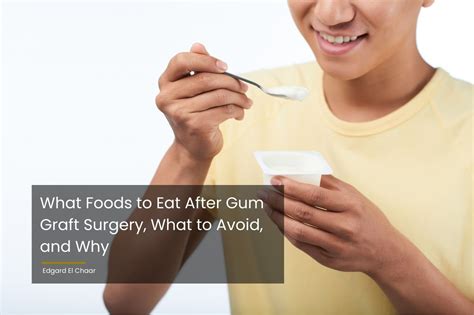Gum Grafting Healing: Diet & Nutrition Tips for a Speedy Recovery
Gum grafting, a common periodontal procedure, involves surgically transplanting gum tissue to cover exposed tooth roots or fill gum recession. While the surgical technique is crucial, your post-operative diet and nutrition play a significant role in the healing process and overall success of the graft. Following a carefully planned nutritional strategy can significantly reduce discomfort, minimize complications, and promote faster healing. This article explores the optimal diet and nutrition tips for a successful gum grafting recovery.
What is Gum Grafting?
Before delving into dietary recommendations, let's briefly understand the procedure. Gum grafting aims to restore gum tissue lost due to gum disease (periodontal disease), aggressive brushing, or other factors. The grafted tissue can come from different sources, including your own palate or a donor site. The success of the graft depends on the meticulous work of the periodontist and, importantly, your diligent post-operative care, including following a proper diet.
What to Eat After Gum Grafting: The Do's and Don'ts
The immediate post-operative period requires a soft food diet to avoid disrupting the healing graft. Here's a breakdown:
Do's:
- Soft, easily chewable foods: Think mashed potatoes, yogurt, applesauce, oatmeal, scrambled eggs, well-cooked pasta, and smoothies. These foods minimize stress on the surgical site.
- Nutrient-rich foods: Focus on foods rich in protein (for tissue repair), vitamins (especially vitamin C for collagen production, essential for gum healing), and antioxidants (to combat inflammation).
- Plenty of fluids: Staying hydrated is crucial for overall healing. Water, clear broths, and diluted fruit juices are excellent choices.
- Small, frequent meals: Avoid large meals that can cause discomfort and strain on the jaw muscles.
Don'ts:
- Hard, crunchy, or chewy foods: These can dislodge the graft or cause bleeding. Avoid nuts, chips, popcorn, raw vegetables, and tough meats.
- Spicy or acidic foods: These can irritate the sensitive surgical area.
- Alcohol and smoking: These significantly hinder the healing process and increase the risk of complications. Avoid them completely during recovery.
- Foods requiring excessive chewing: Minimize strain on the surgical site.
How Long Does Gum Grafting Healing Take?
Healing time varies depending on the individual and the extent of the surgery. Most patients experience significant improvement within a few weeks, with complete healing taking several months. Following a proper diet and adhering to the dentist's post-operative instructions are key to a successful outcome and speedier healing.
What are the Best Foods for Gum Grafting Healing?
Here are some specific food recommendations to incorporate into your diet:
- Protein sources: Lean meats, fish, eggs, beans, lentils, and tofu are excellent sources of protein, essential for tissue repair and regeneration.
- Vitamin C-rich foods: Citrus fruits, strawberries, bell peppers, and broccoli are packed with vitamin C, crucial for collagen production.
- Antioxidant-rich foods: Berries, spinach, kale, and dark chocolate contain antioxidants that reduce inflammation and promote healing.
- Calcium-rich foods: Dairy products, leafy greens, and fortified foods contribute to overall bone and tissue health.
What Foods Should You Avoid After a Gum Graft?
Again, it's vital to steer clear of foods that could damage the graft:
- Anything hard or crunchy: This includes hard candies, ice, nuts, and chips.
- Spicy foods: These can irritate the sensitive gums.
- Acidic foods and drinks: These can increase discomfort and potentially slow down healing.
- Alcohol and tobacco: These are extremely detrimental to healing.
Can I Drink Alcohol After Gum Grafting?
No, it's crucial to avoid alcohol completely during the healing period. Alcohol can interfere with blood clotting, increase inflammation, and delay healing. It's best to abstain until your dentist gives you the all-clear.
Can I Smoke After Gum Grafting?
Smoking is highly detrimental to healing after gum grafting. Smoking restricts blood flow to the surgical site, impeding the healing process and increasing the risk of complications such as infection and graft failure. It's essential to avoid smoking completely during and after the procedure.
What Supplements Can Help with Gum Grafting Healing?
While a balanced diet should provide all the necessary nutrients, some supplements may be beneficial under the guidance of your dentist or physician. These might include Vitamin C, Vitamin E, and possibly others. Always consult your healthcare provider before taking any supplements.
Conclusion: Nourishing Your Way to a Healthy Recovery
Successfully healing from gum grafting requires careful attention to both surgical technique and post-operative care. A well-planned diet, rich in the essential nutrients for tissue repair and regeneration, plays a critical role in promoting faster healing and minimizing complications. Remember to consult your dentist or periodontist for personalized dietary advice tailored to your specific needs. By following these tips and collaborating closely with your dental professional, you can optimize your recovery and enjoy the long-term benefits of a healthy gum line.

